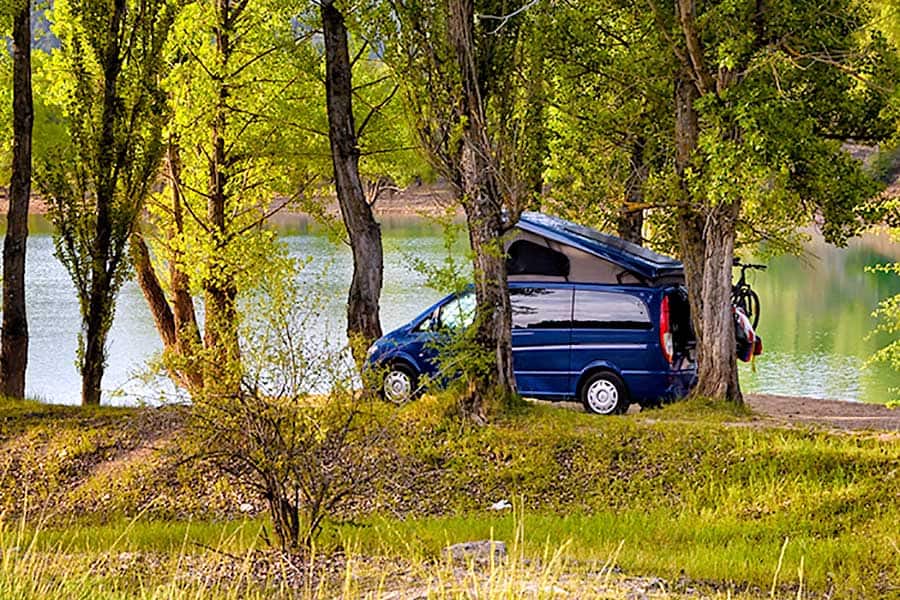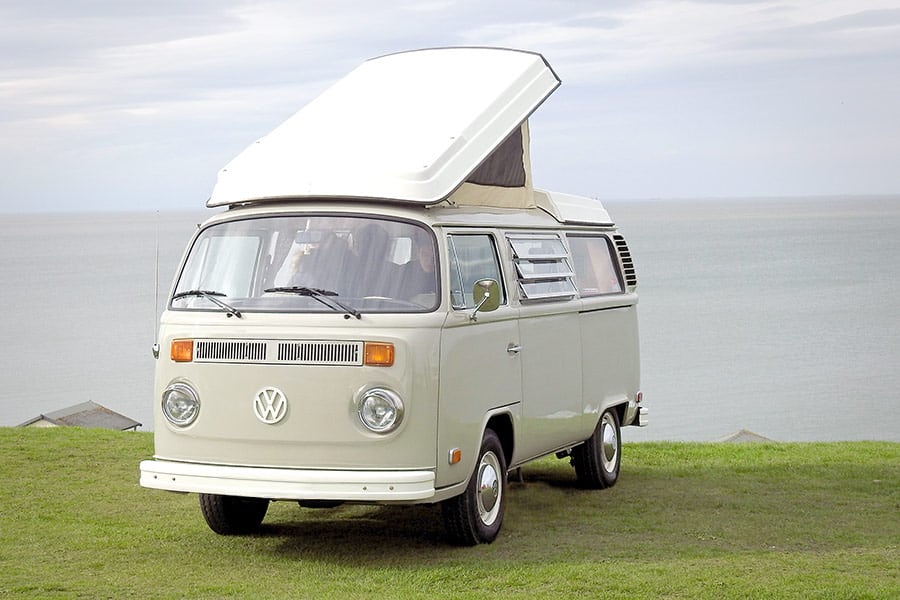
Owning an RV is a dream for many people. RVing is a perfect family activity: one can travel and experience new and exciting places while bringing along many of the essential comforts of home. However, not many people have the liquid assets on hand to buy an RV outright, requiring them to finance the vehicle. How many years can you finance a Class B RV?
The average buyer can finance a Class B RV for anywhere from 5 to 20 years. In special cases, you might be able to finance for longer or shorter terms. Financing is a convenient choice to bring your dream of RV ownership to fruition, and learning about your options is a valuable purchasing tool.
There are a lot of variables at play in RV financing, more so than when financing a car or truck. You may find that there are different options available to you because of the unique nature of RVs. As we continue on, you will learn more about financing your Class B RV, how your credit affects your loan, financing options, and more.
Financing a Class B RV
While an average car loan might last four to seven years, RVs fall under a very different set of circumstances that make them more viable for long-term financing. For instance, most Class B RVs will not be ‘daily drivers’ prone to racking up high mileage in the short term. Because the predicted lifespan of the RV is longer than that of a car, and because RVs are more expensive, you can finance your RV over a longer period of time. Many lenders offer RV loans with terms as long as twenty years.
Some RVers like the lifestyle so much that they decide to live in their vehicle permanently. Does this affect your financing, and can you negotiate longer terms? The answer is complex, involving federal and state tax laws, regulations, proofs of residence, and much more. In short: you can do it, but it might only be worth doing in a specific set of circumstances. For the average RV user, and especially for the average Class B RV user, a more traditional loan term is likely a better option.
Financing an RV is a lot like financing a regular car – but it is not exactly the same thing. RVs are used in very different ways than cars. Some of them may even qualify as second homes, depending on your specific circumstances. So, where do you get started when you want to finance your Class B RV?
The first step is to decide where you want to go for your financing. Many RV dealerships will offer you in-house financing, either through their own financial apparatus or through a partner organization. Before you sign, you also should shop around for the best financing deal. Local banks, credit unions, and even online lenders may have competitive financing plans that are better than what your dealer offers.
Some of these lenders provide handy online loan calculators. By entering the cost of your new RV, the value of any down payments, and predicted interest rates and terms, you can get a good sense of how much it would cost you to purchase your new Class B RV.

When you buy an RV, the bank views the object itself as collateral. Using the RV as collateral means, you won’t need to sign away rights to other things like a house or a car when financing your RV. Since the RV is used as collateral, this means that your lender can seize your RV if you do not make the payments. Responsible spending and financing will prevent this doomsday scenario.
Like any other kind of loan, financing a Class B RV involves paying interest. How much will you pay in interest for your shiny new RV?
Specific rates are going to vary widely, depending on:
- Amount of principal
- Type of RV financed (new, used, options, chassis)
- And most importantly, your credit score
Your credit score is critical and has a substantial impact on your interest rates. Lenders do not like to give good terms to people with scores below about 600. Therefore, one of the most significant things you can do to get an RV loan is to check and manage your credit score. When considering applicants for RV loans, many institutions like to see credit scores of at least 700-750.
Many RV lenders require you to make a down payment. In general, lenders prefer you to put down at least 10% of the purchase price of the RV. Some prefer you to pay 20% as a down payment for the vehicle. A down payment might sound like an obstacle, but in truth, the less you finance, the more you save in the long run.
Can you buy an RV with no money down? Maybe if you have exceptional credit, but your average lender will not finance an RV without a down payment. Frankly, it is probably a bad idea. You will have to finance a much higher amount of money. The monthly payment with be higher, and you’ll pay more in interest over the life of your loan. It’s probably not worth doing this for the average RVer.
Other Posts of Interest
- RVs Built On A Ford Transit Chassis
- Are RV Tire Covers Worth It?
- Are Camping Fridges Worth It? These Ones Are!
- 11 Awesome Van Camping Destinations In The Adirondacks
What is the Current Interest Rates for Financing an RV?
In general, you can expect to pay between 4.3% and 11.9% in interest. The interest rate depends on:
- Your credit score
- Your lender
- The specific RV you are financing
Who Has the Best RV Financing Rates?
RV financing rates vary widely from institution to institution. There is not one specific lender that has the best available rates for every consumer. Your rate will vary depending on the factors listed above. Lenders will also look at:
- Debt-to-income ratio
- Unemployment history
- Recent income statements
To get the best rates available, you should:
- Check and improve your credit score. Getting your score above 700 is a must. Many banks and lenders have free credit apps, and there are many private companies like Credit Karma who can help you manage your score. Try to achieve a score higher than 750.
- Shop around. Veterans and military families may find that lenders like USAA offer better terms than commercial banks. Workers in niche industries may be able to take advantage of promotional financing or special offers. Credit unions often provide favorable terms to members.
- Save for a down payment. The smaller the amount you have to finance, the less you pay over the life of the loan.
How Old of an RV Can You Finance?

Perhaps you’re looking to buy a used RV. How old of an RV can you buy with financing? Generally speaking, you won’t be able to finance an RV that’s more than about 15 years old. RVs do depreciate in value over time and with use, making them less appealing for lenders. If you are purchasing an older Class B, you may be able to obtain a personal loan from your bank to cover the cost. You should also check with your local credit union, who might be willing to finance an older rig in the right circumstances.
Is it Difficult to Finance an RV?
Financing an RV is not especially difficult. By the time someone is considering buying an RV, they usually have purchased other significant expenditures, such as a home or a car. RV financing will be similar. You should prepare for financing your RV by taking the following steps:
- Set a budget. Decide what you can afford, and shop realistically. This decision also involves determining how much and what kind of use you expect from your RV. If you are a fanatical fisherman who will be spending two months a year in your RV, or if you’re retired or semi-retired and plan to go on the road, it might be worth it to spend more.
- Save a down payment. Try to have 10 to 20% of the value of the RV available in cash to cover a down payment.
- Gather relevant documents. Be ready to provide proof of employment, proof of income, and other eligibility documents.
- Shop around. Check rates online at local lenders, talk to local RV dealers, and gather information from friends or family who might have bought an RV before.
How to Finance an RV From a Private Seller?
It is possible to finance an RV when buying from a private seller, but it’s not going to be as simple as financing through a dealer. Your source of financing in this kind of deal will almost certainly be a loan through a bank or credit union. You may be able to get a specifically crafted used RV loan, but chances are you will pay a higher interest rate. The lender may also wish to inspect or otherwise evaluate the vehicle.
Speaking of inspecting the vehicle, you should have a mechanic inspect the RV if you are buying from a private seller. It would be tragic to spend thousands of dollars for a camper van with nonworking systems, worn or hazardous equipment, and private sales are usually considered as-is sales. As-is means once you take possession of the vehicle, it’s yours no matter what happens to it, even if the engine blows up ten minutes later.
If you do buy through a private sale, get a bill of sale and always pay with a bank note or cashier’s check to generate a paper trail. Other factors to keep in mind, you will also be responsible for tags, insurance, and any registration fees for your state.
B Seeing You Around
Class B RVs are wonderful vehicles. Combining agility and handling with essential creature comforts, a Class B RV is a great way to have an adventure and camp out at a new destination. And much to the delight of aspiring RV owners everywhere, it’s a realistic option to finance your Class B. Do some research and prepare ahead, and you might find that financing your new Class B RV is your ticket to a new and thrilling kind of lifestyle.






